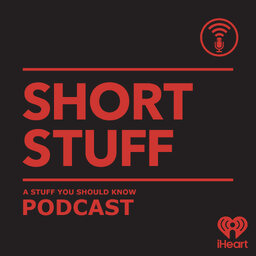The Stinky History of Human Hygiene
Ever wondered when and why people started caring about body odors and cleanliness? Well look no further than today's episode.
In 1 playlist(s)
Stuff You Should Know
If you've ever wanted to know about champagne, satanism, the Stonewall Uprising, chaos theory, LSD, …Social links
Follow podcast
Recent clips

Selects: How Free Range Parenting Works
51:15

How the Flexner Report Changed Medicine
37:50

Short Stuff: Safety Coffins
14:00
 Stuff You Should Know
Stuff You Should Know